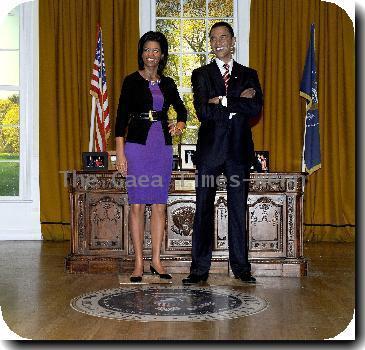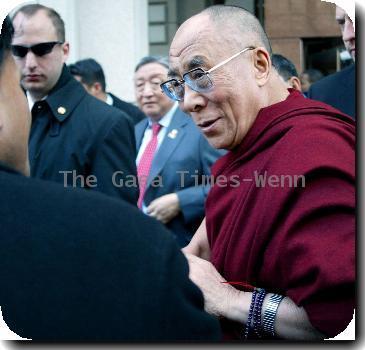Kremlin official: US, Russia reach agreement on ‘all documents’ for strategic arms treaty
By Lynn Berry, APWednesday, March 24, 2010
Kremlin source: US, Russia agree on arms treaty
MOSCOW — The United States and Russia have reached an agreement on “all documents” necessary to sign a new nuclear arms treaty, a senior Kremlin official said Wednesday, and the White House said the two nations are “very close” to signing it.
Czech officials announced that Prague will host the signing of the new U.S.-Russian treaty to reduce long-range nuclear weapons that would replace the 1991 Strategic Arms Reduction Treaty. They did not give a date.
President Barack Obama spent an hour Wednesday in the White House briefing Democratic Sen. John Kerry, chairman of the Senate Foreign Relations Committee, and Sen. Richard Lugar, the committee’s ranking Republican. Both would play major roles in Senate ratification of the emerging treaty.
Two senior U.S. officials in Washington said there were still technical issues to resolve in an “annex” to the main treaty, but predicted no hurdles to completing the entire deal within days. They spoke on condition of anonymity due to the sensitive discussions.
One official said an announcement that the treaty is complete is expected Friday.
White House press secretary Robert Gibbs and the Kremlin official said a final agreement is not likely until Obama and Russian President Dmitry Medvedev speak again, most likely in the coming days. Gibbs said last time they spoke about the treaty was March 13.
The Kremlin source, speaking by telephone to The Associated Press, said all the documents, including the treaty, have been agreed upon. Russian Foreign Minister Sergey Lavrov said last week that the treaty was 20 pages long, with an extensive protocol attached.
The Russian ambassador to Prague, Alexey Fedotov, told Czech President Vaclav Klaus the date for the signing, which will be released later, Klaus’ office said.
Prague was the city where Obama committed the United States last April to seeking “a world without nuclear weapons.”
As part of that strategy, Obama shook hands with Medvedev last summer on plans to reduce sharply both countries’ nuclear stockpiles. The two leaders had hoped to enshrine the new limits in a replacement for the 1991 START accord, but that treaty expired in December as the talks dragged on.
Negotiations, which have been under way in Geneva, are centered on disputes over verification measures and Russia’s objection to U.S. missile defense plans for Europe.
Russian negotiators have balked at including some intrusive weapons verification measures in the new treaty. The Obama administration has warned that without these, Senate ratification could prove difficult.
Any agreement would need to be ratified by the legislatures of both countries and would still leave each with a large number of nuclear weapons, both deployed and stockpiled.
The expired START treaty, signed by Soviet President Mikhail Gorbachev and President George H.W. Bush, required each country to cut its nuclear warheads by at least one-fourth, to about 6,000, and to implement procedures for verifying that each side was sticking to the agreement.
The two sides pledged to continue to respect the expired treaty’s limits on nuclear arms and allow inspectors to continue verifying that both sides were living up to the deal.
Obama and Medvedev agreed in July to cut the number of nuclear warheads each possesses to between 1,500 and 1,675 within seven years as part of a broad new treaty.
__
Associated Press writers Mark S. Smith, Desmond Butler, Matthew Lee and Jennifer Loven in Washington and Karel Janicek in Prague contributed to this report.
Tags: Barack Obama, Czech Republic, District Of Columbia, Eastern Europe, Europe, International Agreements, John Kerry, Moscow, North America, Nuclear Weapons, Prague, Russia, United States, Vaclav Klaus, Weapons Administration, Weapons Of Mass Destruction






